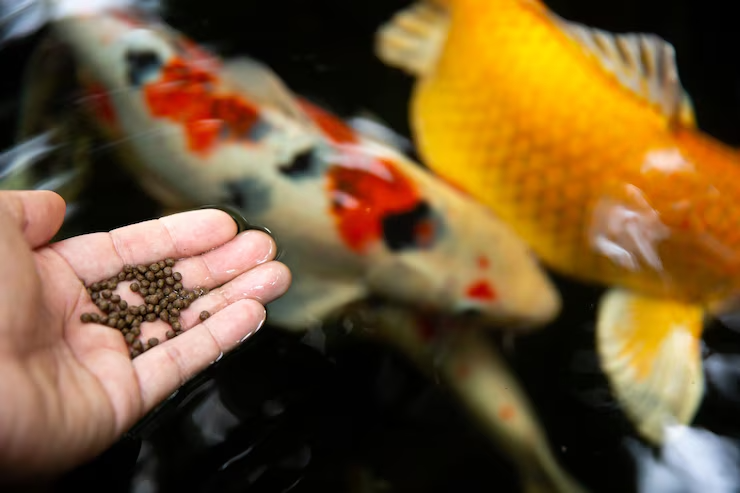
Mar 27, 2024 | Uncategorized
Taking care of a dog involves more than just providing food and shelter. It requires attention to their physical and emotional needs to ensure they lead fulfilling lives. Here are some essential tips for keeping your dog healthy and happy:
- Regular Exercise: Dogs need regular exercise to maintain good physical health and mental well-being. Take your dog for daily walks, engage in playtime activities, or consider enrolling them in obedience classes or agility training.
- Balanced Diet: Provide your dog with a balanced and nutritious diet that meets their specific dietary requirements. Consult with your veterinarian to determine the best food options and feeding schedule based on factors such as age, breed, and activity level.
- Routine Veterinary Care: Schedule regular check-ups with your veterinarian to monitor your dog’s overall health and address any potential issues early on. Keep up with vaccinations, flea and tick prevention, and dental care to prevent common health problems.
- Grooming: Regular grooming is essential for maintaining your dog’s hygiene and appearance. Brush your dog’s coat regularly, trim their nails, clean their ears, and bathe them as needed. Pay attention to any signs of skin issues or parasites during grooming sessions.
- Socialization: Expose your dog to different environments, people, and other animals from a young age to promote socialization skills and prevent behavioral problems. Encourage positive interactions and provide opportunities for mental stimulation through games and activities.
By following these tips and providing your dog with love, care, and attention, you can ensure they live a happy and healthy life by your side.

Mar 27, 2024 | Uncategorized
Cats are independent and low-maintenance pets, but they still require proper care and attention to thrive. Here are some essential cat care tips for cat owners:
- Nutritious Diet: Feed your cat a balanced diet that meets their nutritional needs and supports their overall health. Choose high-quality cat food that is appropriate for their age, size, and activity level. Provide fresh water at all times to keep them hydrated.
- Litter Box Maintenance: Keep your cat’s litter box clean and odor-free by scooping it daily and changing the litter regularly. Cats are naturally clean animals, and a dirty litter box can lead to behavioral issues and health problems.
- Regular Veterinary Check-ups: Schedule annual check-ups with your veterinarian to monitor your cat’s health and detect any potential issues early on. Keep up with vaccinations, flea and tick prevention, and dental care to maintain their well-being.
- Enrichment and Play: Provide your cat with opportunities for mental stimulation and physical exercise through interactive toys, scratching posts, and play sessions. Cats need outlets for their natural instincts to hunt, climb, and explore their environment.
- Grooming: While cats are generally good at grooming themselves, they may still require assistance with brushing to prevent matting and hairballs. Trim their nails regularly, clean their ears, and monitor their coat for signs of parasites or skin issues.
- Safe Environment: Create a safe and stimulating environment for your cat by removing potential hazards and providing cozy resting areas. Keep toxic plants, chemicals, and small objects out of reach, and consider providing vertical spaces for climbing and perching.
By following these cat care tips and providing your feline friend with love and attention, you can ensure they live a happy and healthy life in your home.

Mar 27, 2024 | Uncategorized
Owning fish can be a rewarding hobby that adds beauty and tranquility to your home. However, it’s essential to understand the responsibilities involved in fish ownership to ensure the well-being of your aquatic pets. Here are some top tips for responsible fish ownership:
- Proper Tank Setup: Set up an appropriate aquarium environment for your fish, taking into account factors such as tank size, water quality, temperature, filtration, and lighting. Research the specific requirements of the fish species you plan to keep to create an optimal habitat for them.
- Water Quality Maintenance: Monitor water parameters such as pH, ammonia, nitrite, and nitrate levels regularly to ensure a healthy aquatic environment. Perform partial water changes as needed to remove waste and replenish essential nutrients.
- Compatible Fish Species: Choose fish species that are compatible in terms of size, temperament, and water requirements to prevent aggression and territorial disputes. Research the compatibility of different fish species before adding them to the same tank.
- Feeding Regimen: Feed your fish a balanced diet that meets their nutritional needs and avoids overfeeding, which can lead to water quality issues and health problems. Offer a variety of high-quality foods such as flakes, pellets, and live or frozen foods to ensure a diverse diet.
- Tank Maintenance: Maintain a regular cleaning and maintenance schedule for your aquarium, including tasks such as algae removal, filter maintenance, and substrate vacuuming. Keep the tank environment clean and free of debris to promote fish health and well-being.
- Observation and Care: Monitor your fish regularly for signs of illness or distress, such as changes in behavior, appetite, or appearance. Address any issues promptly by consulting with a knowledgeable fish veterinarian or aquatic specialist.
By following these tips and dedicating time and effort to proper fish care, you can create a thriving aquatic ecosystem and enjoy the beauty of your fish for years to come.

Mar 27, 2024 | Uncategorized
Birds make delightful and interactive pets, but they require specialized care to ensure their health and happiness. Whether you have a small finch or a large parrot, here are some bird care basics to keep in mind:
- Appropriate Housing: Provide your bird with a spacious and secure cage or aviary that allows for natural behaviors such as flying, perching, and exploring. Choose a cage size appropriate for your bird species, with bar spacing that prevents escape.
- Nutritious Diet: Offer your bird a varied and balanced diet consisting of pellets, fresh fruits, vegetables, seeds, and occasional treats. Avoid feeding them foods that are toxic to birds, such as chocolate, caffeine, avocado, and onions.
- Socialization and Enrichment: Birds are highly social animals that thrive on interaction and mental stimulation. Spend time interacting with your bird daily through playtime, training sessions, and verbal communication. Provide toys, puzzles, and foraging opportunities to keep them entertained and engaged.
- Regular Veterinary Check-ups: Schedule regular wellness exams with an avian veterinarian to monitor your bird’s health and detect any potential issues early on. Keep up with vaccinations, parasite prevention, and grooming to maintain their overall well-being.
- Safe Environment: Create a safe environment for your bird by removing potential hazards such as toxic plants, household chemicals, and small objects that they could ingest. Ensure that windows and doors are securely closed to prevent accidental escapes.
- Grooming and Hygiene: Birds require regular grooming to keep their feathers clean and healthy. Provide opportunities for bathing or misting to help them maintain proper hygiene, and trim their nails and beak as needed to prevent overgrowth.
By following these bird care basics and providing your feathered friend with love, attention, and proper care, you can build a strong bond and enjoy the companionship of your bird for many years to come.



